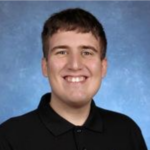
Comparing Pearl and Krug
Home › Forums › 2023 Summer Seminar › Looking at Perl & Krug: due JUNE 15 (or earlier) › Comparing Pearl and Krug
- This topic has 2 replies, 3 voices, and was last updated 1 year, 4 months ago by
 Kelly Feinstein-Johnson.
Kelly Feinstein-Johnson.
-
AuthorPosts
-
-
June 13, 2023 at 8:50 pm #31838
 eduardo martinezParticipant
eduardo martinezParticipantThe exploration of identity in Lilli Perl’s “Four Perfect Pebbles” and Nora Krug’s “Belonging: A German Reckons with History and Home” provides compelling perspectives on the Jewish and German experiences during and after the Holocaust. Despite their contrasting backgrounds, both authors navigate their histories and experiences of otherness with poignancy and introspection.
Perl’s memoir, as a Holocaust survivor, presents a Jewish American perspective. Her recollections focus on her experiences in Nazi concentration camps and the resilience it required to survive and later thrive in America. Krug, on the other hand, grapples with the guilt and responsibility she feels as a descendant of a generation that may have been complicit in the Nazi regime.
What unites both narratives is their search for identity and understanding, viewed through the lens of their inherited pasts. Both authors carry the weight of their history, though in different ways: Perl, with her traumatic memories and struggle for survival; Krug, with her unsettling exploration of her family’s possible involvement in the Nazi regime. These journeys influence their identities, their understanding of self, and their placement within their respective societies.
A critical difference lies in the authors’ positions on the Holocaust’s spectrum. Perl is a direct victim, providing a firsthand account of the horrific atrocities, while Krug investigates the era as a post-Holocaust German grappling with her ancestral past. This variance in perspective brings unique insights into the Holocaust’s lingering effects on both the oppressed and the descendants of the oppressors.
In relation to my own life as a Holocaust history teacher in Miami, Florida, these memoirs have helped me understand the deeply personal and multifaceted impacts of the Holocaust. It’s one thing to teach the historical facts, and quite another to comprehend the lifelong imprint left on the identities of those directly and indirectly affected.
The exploration of “otherness” in both memoirs is particularly relevant to me. Living in a multicultural city like Miami, I often observe how historical and cultural experiences shape identities, leading to both unification and division among various groups. Perl and Krug’s memoirs reinforced my belief in the importance of understanding different perspectives, histories, and experiences to foster empathy, tolerance, and mutual respect.
-
June 17, 2023 at 12:48 pm #31873
 Barbara LazarParticipant
Barbara LazarParticipantEduardo,
This: “…search for identity and understanding, viewed through the lens of their inherited pasts…” can be a challenge for many, but I do appreciate that these two women took us along on their journey. I/we have just completed facilitating our TOLI New Mexico Regional Seminar, and the complexities of learning about and one of the more compelling topics we broached was the stories of the ‘genizaros’ of New Mexico, the indigenous peoples enslaved (through trade, rape, capture…) by the colonizer Spaniards. Yes, there were tears of sadness and of finally being seen and ‘understood’ as our participants saw themselves in this story…..
A complicated chapter, indeed…..-
June 20, 2023 at 1:41 pm #31897
 Kelly Feinstein-JohnsonParticipant
Kelly Feinstein-JohnsonParticipantI’m also interested in the difference of perspectives between the authors and see it as related to their positions as 2nd generation vs. 3rd generation. Although the Holocaust is personal for both authors, their historical relationship to it is strikingly different. Characteristic of 2nd generation accounts who face the silence of parents and grew up before the growth of Holocaust studies in the 1990s and 2000s, Perl confronts the Holocaust in the 1990s, in a middle point in her career. Her early life was spent in the years immediately after the Holocaust when the US and the world was wrestling with how much to say, teach, discuss. Her relationship with the Holocaust seems more shaped by her personal experiences informing historical inquiry. Krug is 3rd generation (from the perpetrator’s) and wrestling with the Holocaust in the 21st century – when Holocaust education is direct and pervasive, especially in Germany. The post-Cold War Germany she grew up in had decades of experience actively confronting its Nazi past and translating that confrontation into robust education. Krug’s journey strikes me as beginning with academic-historical knowledge that than causes her to shape her personal inquiry and journey. As I’ve written before, this seems very characteristic what happens through generations as history becomes memory, and makes me wonder – what will the 4th generation say and ask, when there is no one left living to ask? Where will their journey’s take them?
-
-
-
AuthorPosts
- You must be logged in to reply to this topic.